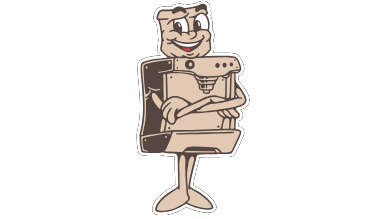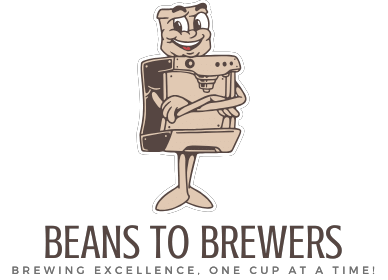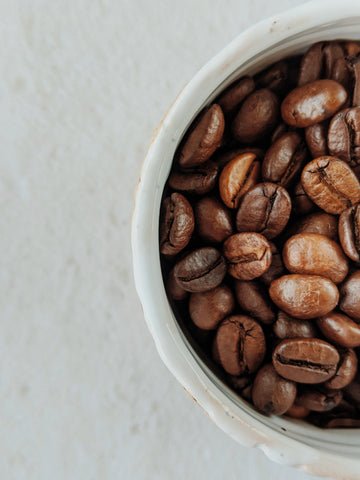If you’re tired of ending up with a bitter and unpleasant cup of coffee, then this article is for you. In “Top 7 Tips For Avoiding Over-extraction In Your Brew,” we will explore easy and practical ways to prevent over-extraction and ensure that every sip of your coffee is a perfect balance of flavors. From adjusting your grind size to tinkering with water temperature, these helpful tips will empower you to brew a delicious cup of coffee that will leave you craving for more. So, grab your favorite mug and get ready to elevate your coffee brewing game to the next level!
Choose the right grind size
Understand the impact of grind size on extraction
When brewing coffee, the grind size plays a crucial role in determining the flavor and strength of your cup. If the grind size is too fine, the water will extract too much from the coffee grounds, resulting in a bitter and over-extracted brew. On the other hand, if the grind size is too coarse, the water will not extract enough, leading to a weak and under-extracted coffee. Understanding the impact of grind size on extraction is key to achieving the perfect balance.
Experiment with different grind sizes
To find the ideal grind size for your taste preferences, it’s important to experiment with different options. Start by adjusting the grind size slightly and see how it affects the taste of your coffee. If the brew is too bitter, try using a coarser grind. If it’s too weak, try a finer grind. Keep experimenting until you find the sweet spot, where the flavors are balanced and the coffee is enjoyable to drink.
Use a consistent grind size
Once you’ve found the right grind size, it’s crucial to use a consistent grind size every time you brew. Consistency is key to achieving reproducible results and avoiding over-extraction. Invest in a good quality grinder that offers consistent grind size, and make sure to calibrate and maintain it regularly. This will ensure that each cup of coffee you brew is of the same high standard.
Control the brewing time
Monitor the brewing time
Brewing time refers to the amount of time that the water is in contact with the coffee grounds during the brewing process. It is important to monitor the brewing time closely to avoid over-extraction. Different brewing methods have different optimal brewing times, so make sure to follow the instructions for your specific method. Use a timer or a stopwatch to keep track of the brewing time accurately.
Adjust the brewing time based on taste
While it’s essential to follow the recommended brewing time, it’s also important to adjust it based on your taste preferences. If you find that your coffee is consistently over-extracted and bitter, try reducing the brewing time slightly. On the other hand, if it’s under-extracted and weak, increase the brewing time. Remember that small adjustments can make a big difference, so pay attention to the flavors and make necessary changes.
Avoid over-extracting by stopping the brewing process at the right time
To avoid over-extraction, it’s crucial to stop the brewing process at the right time. This means removing the coffee grounds from the water once the extraction process is complete. Leaving the grounds in contact with the water for too long can lead to over-extraction and result in a bitter and unpleasant taste. Pay close attention to the brewing time and remove the coffee grounds promptly to achieve the best flavor in your cup.
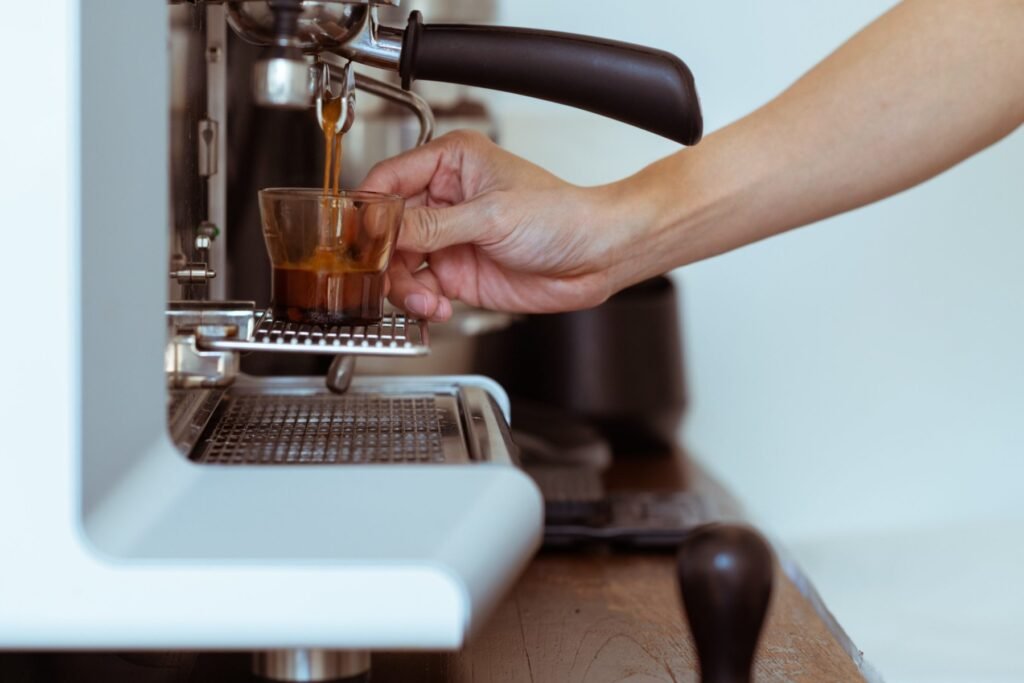
This image is property of shop.delonghi.com.
Adjust the water temperature
Understand the relationship between water temperature and extraction
The water temperature plays a significant role in the extraction process. Different compounds in coffee dissolve at different temperatures, and finding the right balance is essential to avoid over-extraction. Generally, hotter water extracts more quickly and can lead to over-extraction, while cooler water may under-extract and result in a weak brew. Understanding the relationship between water temperature and extraction is key to achieving a perfectly balanced cup of coffee.
Use a thermometer to control the water temperature
To ensure precise control over the water temperature, it’s recommended to use a thermometer during the brewing process. Different brewing methods may have specific temperature recommendations, so make sure to check the instructions for your chosen method. By monitoring the water temperature closely, you can make adjustments as needed to prevent over-extraction and achieve optimal flavor extraction from the coffee grounds.
Experiment with different water temperatures
Just like with grind size and brewing time, experimenting with different water temperatures can help you find the ideal balance for your taste preferences. If you find that your coffee is consistently over-extracted, try using slightly cooler water. Conversely, if it’s consistently under-extracted, try using slightly hotter water. Take note of the flavors and adjust accordingly until you find the perfect temperature for your preferred taste.
Use the correct water-to-coffee ratio
Follow recommended ratios for different brewing methods
The water-to-coffee ratio refers to the amount of water and coffee used in the brewing process. Following the recommended ratios for different brewing methods is crucial to avoid over-extraction. Each brewing method has its own ideal ratio to achieve the desired flavor profile. For example, pour-over methods typically use a ratio of 1:15 (1 part coffee to 15 parts water), while espresso often requires a ratio of 1:2. Experiment with different ratios to find the one that suits your taste preferences and helps to prevent over-extraction.
Measure the amount of water and coffee accurately
To ensure consistency and accuracy in your brewing process, it’s important to measure the amount of water and coffee accurately. Use a scale to weigh both the coffee and water, rather than relying on volume measurements. This way, you can maintain the proper water-to-coffee ratio and avoid any variations that may contribute to over-extraction. Investing in a reliable scale will greatly improve the precision and quality of your brew.
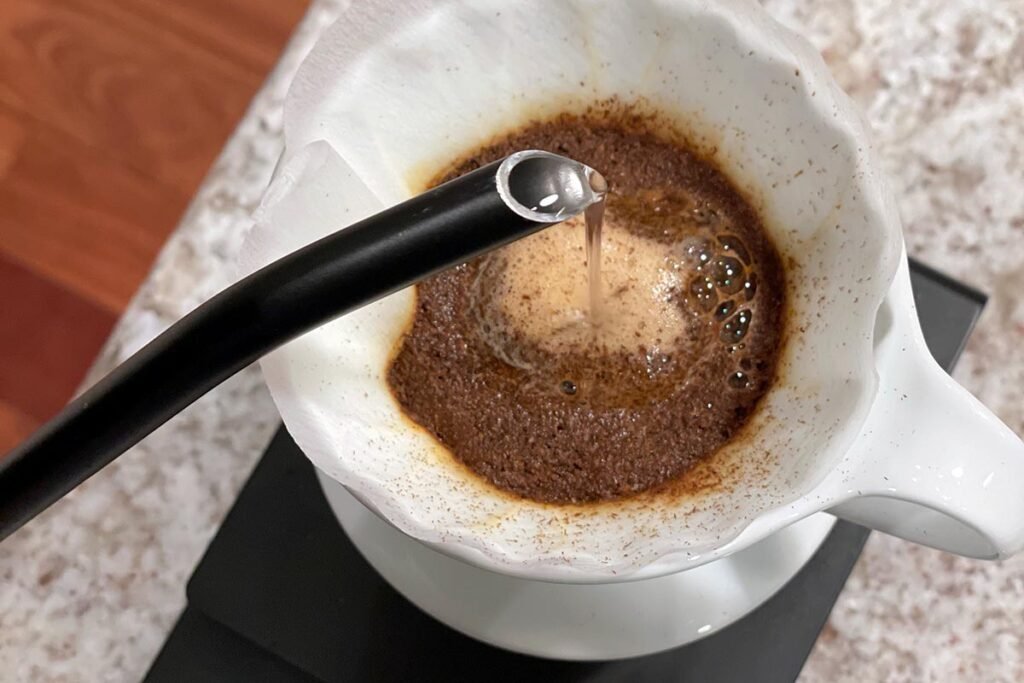
This image is property of pullandpourcoffee.com.
Avoid over-stirring the coffee grounds
Gently stir the coffee grounds to ensure even extraction
Stirring the coffee grounds during the brewing process helps to promote even extraction and ensure a consistent flavor throughout your cup. However, it’s important to avoid over-stirring, as excessive agitation can lead to over-extraction. Gently stirring the coffee grounds once or twice at the beginning of the brewing process is sufficient to achieve even extraction without risking an overly strong and bitter brew.
Avoid excessive agitation that can lead to over-extraction
While an initial stir is beneficial, excessive agitation should be avoided to prevent over-extraction. Vigorously stirring the coffee grounds or constantly agitating them during brewing can cause the water to extract too much from the grounds, resulting in a bitter and unpleasant taste. Remember to handle the coffee grounds gently and let the natural extraction process take place without excessive interference.
Invest in a quality coffee grinder
Choose a grinder that offers consistent grind size
Investing in a quality coffee grinder is one of the best ways to achieve a consistent grind size, which is crucial in preventing over-extraction. Look for a grinder that offers settings for different grind sizes and ensures uniformity in particle size. This will ensure that each coffee ground is exposed to the water equally, resulting in a well-balanced brew.
Avoid grinders that produce excessive fines
Some coffee grinders produce excessive fines, which are smaller particles that can lead to over-extraction. These fines can extract more quickly and contribute to a bitter flavor. When choosing a grinder, look for one that produces minimal fines and focuses on creating uniform particle sizes. This will help to prevent over-extraction and ensure a smoother and more enjoyable cup of coffee.
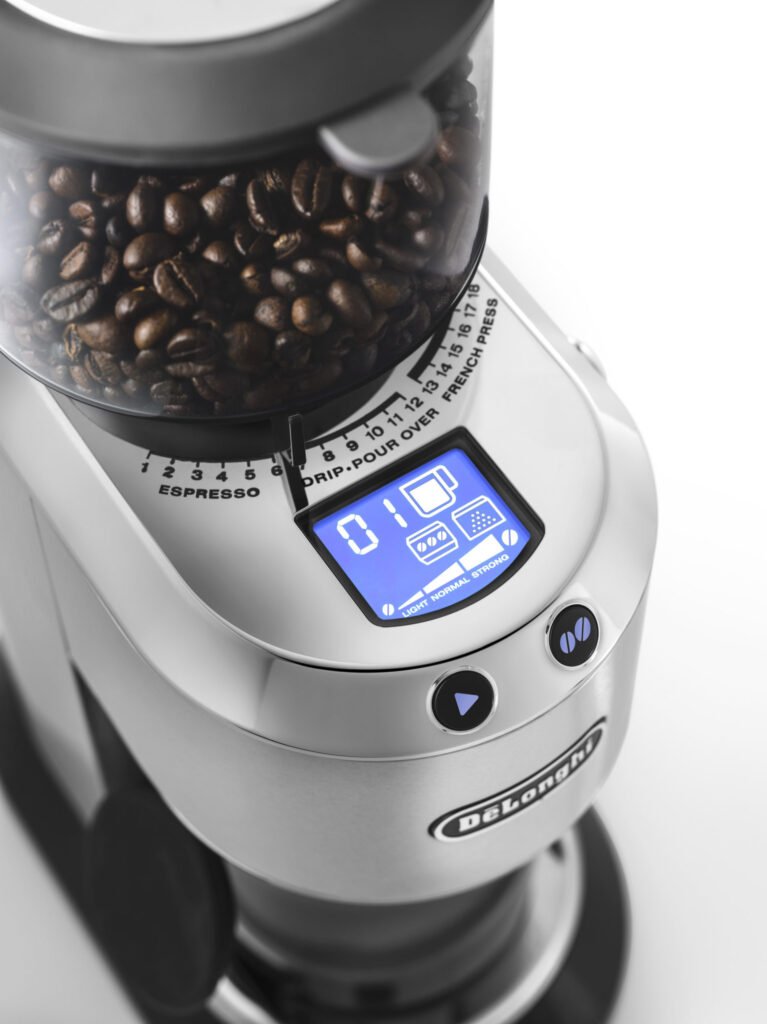
This image is property of shop.kenwoodworld.com.
Try different brewing methods
Explore brewing methods that have less risk of over-extraction
If you consistently struggle with over-extraction, it may be worthwhile to explore alternative brewing methods that have a lower risk of over-extraction. Methods such as cold brew or immersion brewing tend to produce a smoother and less bitter flavor profile, making them ideal for those seeking to avoid over-extracted coffee. Experimenting with different brewing methods can open up new possibilities and help you discover the perfect brewing technique for your taste preferences.
Experiment with cold brew or immersion brewing
Cold brew and immersion brewing methods are known for their ability to produce a milder and less bitter flavor profile. Cold brew involves steeping coffee grounds in cold water for an extended period, while immersion brewing, such as the French press, allows the coffee grounds to steep in hot water before being separated. These methods can be great alternatives for those looking to avoid over-extraction and enjoy a smoother cup of coffee.
Quality of the coffee beans
Choose high-quality, freshly roasted beans
The quality of the coffee beans you use has a significant impact on the flavor and extraction of your brew. Opt for high-quality beans that have been freshly roasted. Freshly roasted beans retain more flavors and aromas, resulting in a more satisfying cup of coffee. Avoid using old or stale beans, as they can lead to over-extraction and a flat taste. Invest in beans from reputable sources and try different varieties to discover the flavors that suit your palate.
Avoid old or stale beans that can result in over-extraction
Using old or stale beans can significantly contribute to over-extraction. As coffee beans age, they lose their natural oils, flavors, and aromas, making it easier for the water to extract too much from the grounds. This can result in a bitter and unpleasant taste. To avoid over-extraction, ensure that you always use fresh beans and store them properly in airtight containers away from heat, light, and moisture.
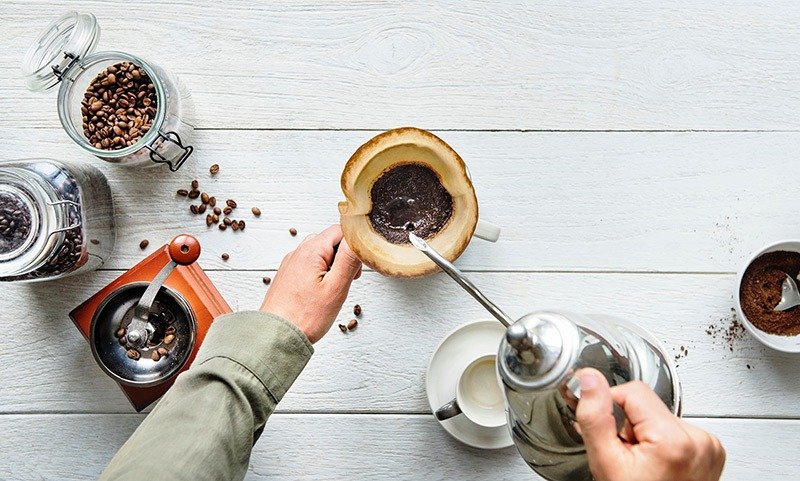
This image is property of dfamgkk1duyqq.cloudfront.net.
Avoid using too fine filters
Choose filters that allow for optimal extraction
The type of filter you use can also impact the extraction process. Opt for filters that allow for optimal extraction, balancing the flow of water while still capturing unwanted oils and sediments. Choosing a filter that strikes the right balance will prevent over-extraction by allowing for a controlled and balanced extraction of flavors from the coffee grounds.
Avoid using filters that can restrict water flow and cause over-extraction
On the other hand, using filters that restrict water flow can lead to over-extraction. These filters can prevent the water from passing through the coffee grounds at a controlled rate, resulting in an overly strong and bitter brew. Avoid using filters that are too fine or dense if you are aiming to prevent over-extraction and achieve a well-balanced cup of coffee.
Take notes and keep track of your brews
Record your brewing process and observations
To improve your brewing skills and avoid over-extraction, it’s important to take notes and keep track of your brews. Record information such as the grind size, brewing time, water temperature, water-to-coffee ratio, and any other variables that may affect the extraction process. Also, make note of the taste and flavors you experience. This will help you identify patterns and make informed adjustments to your brewing technique in the future.
Adjust variables based on previous brews to avoid over-extraction
By referring to your notes and observations from previous brews, you can make informed adjustments to your brewing variables to avoid over-extraction. For example, if you notice a pattern of bitterness, you can experiment with finer grind sizes, shorter brewing times, or slightly cooler water temperatures. By continuously fine-tuning your brewing process based on your past experiences, you’ll be able to consistently achieve the perfect balance of flavors and avoid over-extraction in your brew.
In conclusion, avoiding over-extraction in your coffee brew requires attention to various factors such as grind size, brewing time, water temperature, ratios, agitation, and the quality of beans and filters used. By understanding the impact of these factors and experimenting with different variables, you can achieve a well-balanced and flavorful cup of coffee that is free from bitterness and over-extraction. Remember to take notes, observe the flavors, and make adjustments based on your preferences to continually improve your brewing skills. With practice and attention to detail, you’ll be able to enjoy a consistently satisfying coffee experience.
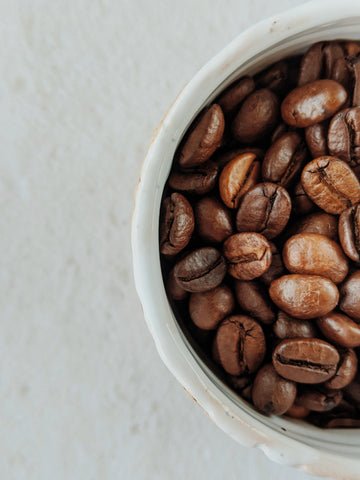
This image is property of cdn.shopify.com.
